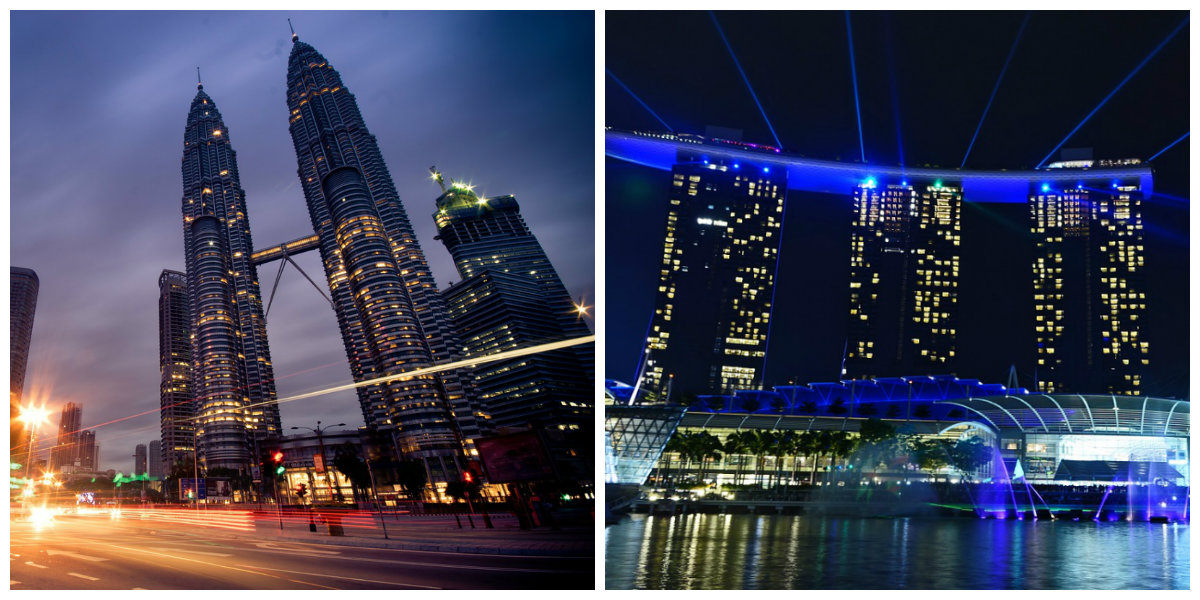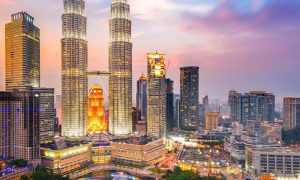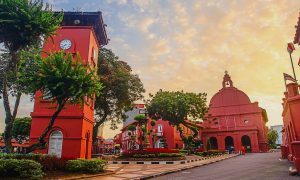There once was a young country that, in its infancy, was struggling a bit to find its footing. Different groups in the country had different ideas on just how things should be done, and for two years, the acrimony festered, straining the fledgling country’s maturation. Finally, the larger of the two groups decided to take action and voted unanimously to expel the smaller group from the country. Having rid itself of the smaller entity, the larger group then set out on the business of building their young nation. The smaller group was left adrift, a new state which had, perhaps in a world’s first, had its independence forced upon it. The two entities went their separate ways, and over the next half century, their divergent paths could hardly have led them in more different directions.
Of course, this is the story of Malaysia and Singapore. Last month, these countries each marked their respective national days. Singapore celebrated its Golden Jubilee, notching 50 years of independence on August 9, 2015. Malaysia noted its 58th anniversary of independence (as Malaya) on August 31, and this month, will mark 52 years as present-day Malaysia, formed in 1963, with Singapore unceremoniously kicked out just two years later.
A recent article in the Financial Times noted that, upon Singapore’s expulsion in 1965, then-Chief Minister Lee Kwan Yew was so distraught at the fate that had befallen his state, a small scrap of land with few resources and a small population, he wept openly on television. It would be the first and last time Yew ever shed public tears in his lengthy, remarkable career. Today, the article states flatly, it is Malaysians who should be weeping.
That sentiment may be a bit strong. After all, despite its current problems, Malaysia still has plenty of appeal, and though Singapore is certainly a wondrous success story, it isn’t without qualifications that it is deemed so. Yew’s long tenure as the small city-state’s Prime Minister was marked by unapologetic authoritarianism. “If nobody is afraid of me,” he once famously said, invoking Machiavelli, “I am meaningless.” During Yew’s time, opposition politicians were forced into financial ruin or exile, people were jailed without trial, and media freedom was virtually non-existent. “You take a poll of any people,” Yew once said in defence of Singapore’s harsh governance of the media. “What is it they want? The right to write an editorial as they like? They want homes, medicine, jobs, schools.”
And Yew’s Singapore provided all of those, and did so with astonishing success. In the span of less than two generations, the tiny island nation with virtually no natural resources roared onto the scene, one of the original Asian Tigers that today boasts prosperity unrivalled throughout the region, enviably low rates of crime and corruption, and a nominal per capita GDP that more than five times that of Malaysia.
And what of Singapore’s northern neighbour? A nation with six times the population, 450 times the land area, and exponentially more resources, Malaysia finds itself not raucously celebrating its 58th year of independence, but perhaps pondering the nation’s unrealised potential. Faced with the most challenging political crisis in years (and arguably among the worst scandals in its history), Malaysia is, according to the Financial Times article, seeing the results of a tenuous political, religious, and ethnic pact that has served as a feeble foundation and now, as the article states, “groans under its own rotten contradictions.” And yet, the scandal and all its far-reaching implications may yet prove to be a game-changer for Malaysia. It is a time of reckoning, and today’s Malaysians are increasingly adamant about having a say in the governance of their country.
To an extent, this is true across the Causeway, as well. A new generation of Singaporeans is making inroads into the previously unassailable governing power of the People’s Action Party, much as Barisan Nasional’s hold is being tested here. It wasn’t always this way, though. Early Singaporeans, in what was a largely unspoken social compact, quietly accepted the restriction of personal liberties in exchange for government-nurtured growth and prosperity. And Singapore has indisputably done well at creating a sense of egalitarianism and national unity, using language, meritocracy, and a strong streak of incorruptibility. On the other hand, Malaysia has demonstrated much the opposite in virtually all these respects. Though the Financial Times article makes some fair points in comparing Malaysia and Singapore, it fails to take into account the unique circumstances faced by each country during the time of their founding. A direct comparison, though tempting to make, isn’t entirely justified, as the two countries encountered markedly different challenges as they took their fi rst steps.
This of course isn’t the end of our tale of two countries. On the contrary, it’s just the midpoint of an early chapter. In which direction will Singapore move without its founding father’s strong guidance? How will Malaysia recover from this debilitating scandal and economic uncertainty?
Singapore and Malaysia, two countries once united. Two countries with much the same multicultural population and much the same heritage. Two countries ripped apart and set on two very different paths.
Read This: Malaysia: A Brief Look at the Nation’s Past and Present
Source: The Expat magazine September 2015
"ExpatGo welcomes and encourages comments, input, and divergent opinions. However, we kindly request that you use suitable language in your comments, and refrain from any sort of personal attack, hate speech, or disparaging rhetoric. Comments not in line with this are subject to removal from the site. "





















New IPhone App for expats! Check out MyBranchnch !! Download here: http://bit.ly/1TF56wm
India & Pakistan ought to take a leaf – learn a lesson or two – foolish muscle flexing – responsible to keep citizens apart — “Bus to Lahore” initiative by the former BJP PM ABVP – not being followed ???